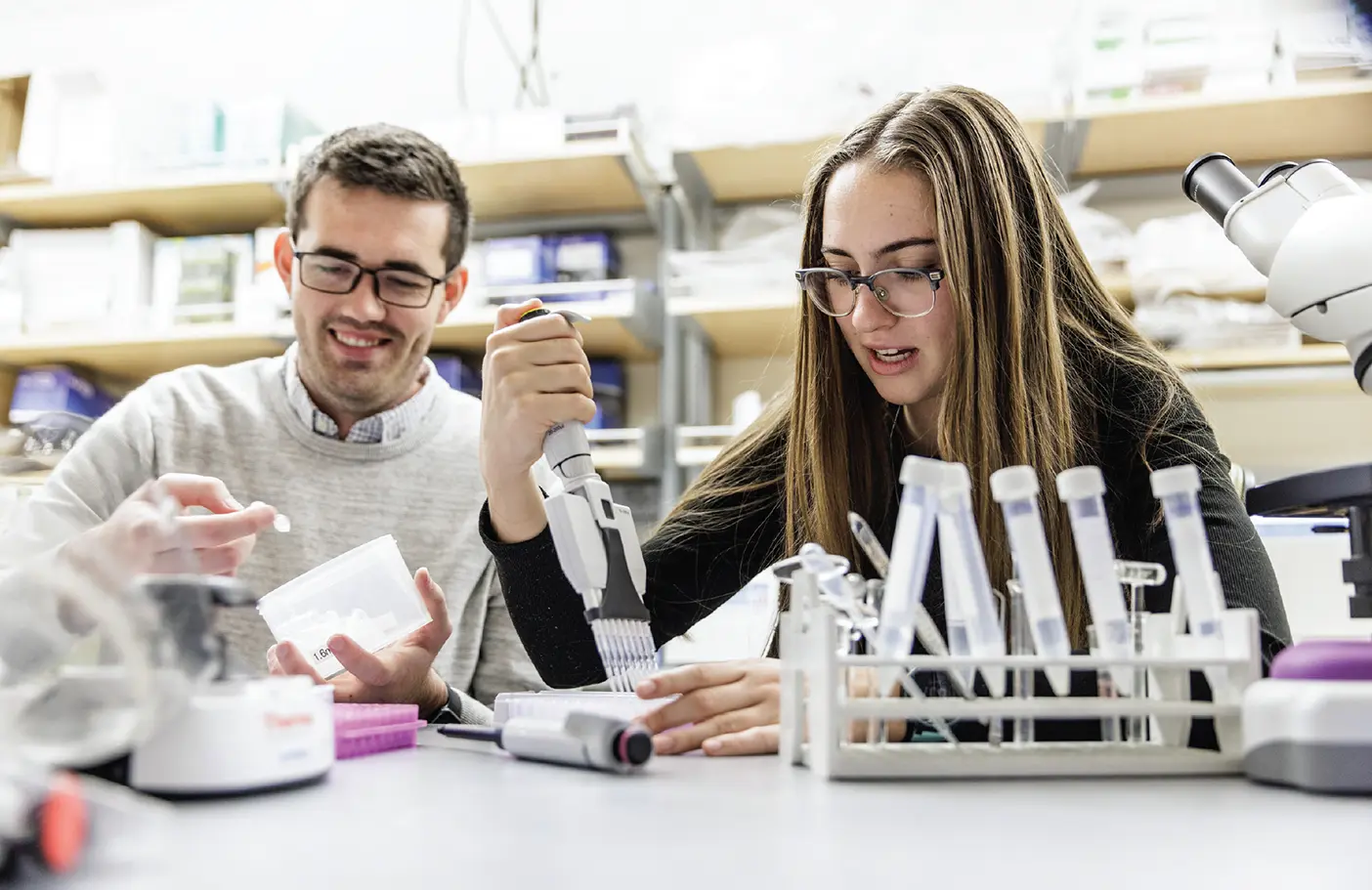The lab of Timothy G. Jenkins (BS ’08), BYU professor of cell biology and physiology, applies epigenetics—in short, the study of how external factors impact gene expression—to male fertility. For two students who work there, PhD candidate Chad A. Pollard (BS ’22) and genetics major Kelaney M. Stalker (BS ’23), the lab has become a source of unexpected inspiration.
Pollard and Stalker channeled what they learned of epigenetics into projects of their own in fields they are passionate about: neurodegenerative diseases and domestic-abuse forensics, respectively.
“The coolest thing about BYU,” Jenkins says, “is that I don’t think this would happen in a different environment. There was a lot of synergy that I would describe as inspiration.”

Hope on the Brain
As one of the first students in Jenkins’s lab, Pollard realized the research happening there could also be applied in neuroscience—his undergraduate major. Neurodegenerative diseases such as Alzheimer’s aren’t diagnosed and treated until symptoms appear. But if disease can be identified earlier, a number of FDA-approved drugs can slow degeneration.
“[Jenkins and I] realized we could use epigenetics to identify increased neuron cell death in the blood well before someone gets symptoms,” says Pollard.
Their research was published in Frontiers in Neurology in 2023, and they are now working to make early diagnosis accessible. They founded a biotechnology company, Wasatch Biolabs, that aims to launch diagnostic tests this year. Pollard sees a glimmer of hope: “There’s a real chance to eradicate neurodegenerative disease.”
Justice Through Blood Cells
Stalker leads a research team that uses epigenetics to distinguish menstrual blood from circulatory blood. After a conversation with a forensics professional, Stalker realized that making this distinction could be invaluable in domestic-violence and sexual-assault cases. “This is a problem that we can solve,” Stalker recalls saying.
Stalker developed a test that identifies the DNA methyl mark—a unique genetic expression that instructs body cells where to grow—of tissue lining the uterus, determining whether a blood cell is menstrual or circulatory. This could mean the difference between justice and an aggressor walking free.
“I love it,” Stalker says about her research, which she presented at the International Symposium on Human Identification in 2023. “I hope that it does good.”












